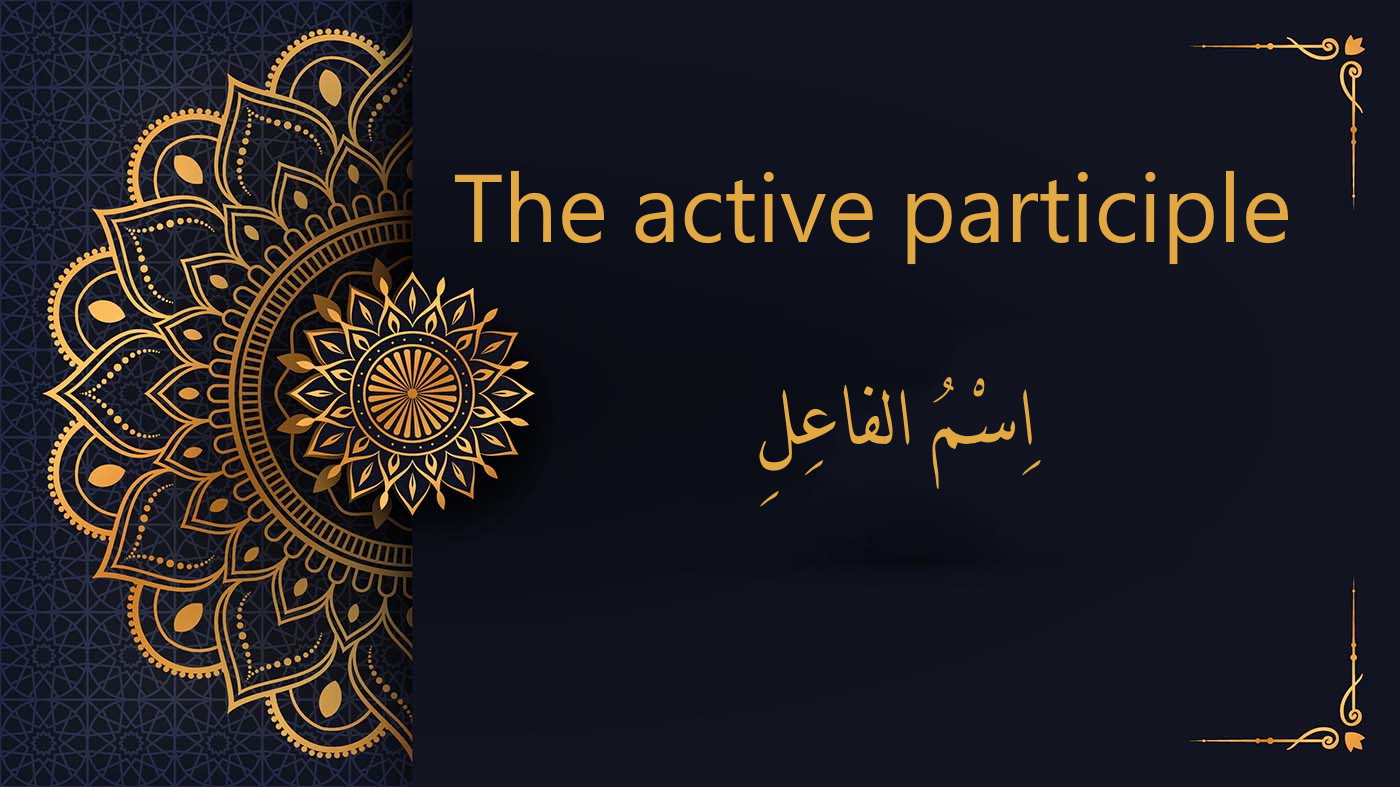Active participle in Arabic – اِسْمُ الفاعِل | Arabic Free Course

Active participle in Arabic – اِسْمُ الفاعِل 1. Introduction In Arabic grammar, the term for the noun representing the doer of an action, also known as the subject, is “اسم الفاعل” or the active participle. It is constructed by adding an alif (ا) to the first radical of the verb (فعل), providing the middle letter […]

